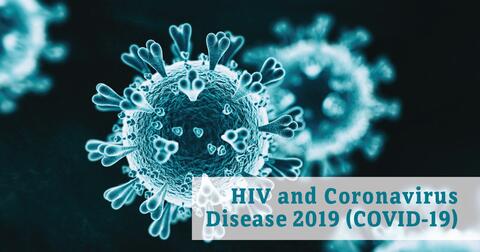As New Jersey continues to respond to the spread of COVID-19 (Coronavirus Disease 2019), we cannot lose sight of other significant pre-existing public health concerns, like HIV and AIDS.
Offcials at Rutgers NJ Medical School said the COVID-19 pandemic has caused substantial disruptions to normal life, leaving many to struggle with accessing medical care, and support services for chronic conditions.
According to the NJ medical school, while this is a trying time for all, it is especially difficult for individuals living with HIV who must stay in treatment in order to remain healthy and keep their HIV viral loads at undetectable levels.
Having low levels of the virus in the blood stops HIV infection from getting worse while also preventing the spread of HIV to partner(s).
"At this time, there is no evidence showing that individuals living with HIV, who are on effective antiretroviral treatment (ART), are at an increased risk for developing severe symptoms of COVID-19 than the general population," Rutgers Medical School Officials said.
Individuals living with HIV who are not taking daily HIV treatment medicines to lower the amount of HIV in their bodies might be at greater risk for SARS-CoV-2 infection (the virus that causes COVID-19, according to Rutgers Medical School officials.
"This concern is yet another reason why knowing and understanding your HIV status and that of your sexual partner(s) is extremely important. HIV testing is the key to living healthy with HIV, even during a global pandemic," Rutgers Medical School officials said.
If diagnosed with HIV, be sure to get treatment immediately after learning your status. The sooner treatment begins, the better a person's chances of leading a long, healthy life. HIV is a manageable, chronic condition as long as the individual commits to staying in active treatment.
Currently, there is no cure or set treatment plans for COVID-19, but there are simple steps an individual living with HIV can take to prevent the spread of, and complications from the virus that causes COVID-19;
Speak with your healthcare team about HIV medicines and treatment: Talk with the healthcare team responsible for treating your HIV about stocking up on at least 30 days of antiretroviral medications (3 months of medicine is ideal).
Taking ARTs as well as maintaining good mental and physical health is the best way to keep your immune system healthy. It is also essential to discuss any changes or disruptions to your healthcare team's office hours and services during the current pandemic.
Ensure vaccinations are up-to-date: The CDC (Centers for Disease Control and Prevention) recommends high-risk groups, including people living with chronic conditions such as HIV, receive the injectable flu and pneumococcal vaccines.
Take everyday preventive actions: Everyday preventative measures can be incredibly helpful in stopping the spread of COVID-19;
Avoid close contact with anyone who seems to be sick and avoid going to work, school, or other public gatherings if you are not feeling well.
Cover your nose and mouth with a tissue or your sleeve when you cough or sneeze. Do not sneeze or cough directly into your hands.
Avoid touching your face (eyes, nose, mouth) as germs can easily spread this way.
Frequently wash your hands with soap and warm water (best option). If that is not available, use an alcohol-based hand sanitizer that contains at least 60 % alcohol as the active ingredient.
It is also important to clean and disinfect frequently touched surfaces and objects as they can be contaminated with SARS-CoV-2 virus.
Wear a face mask or covering when in public places or gatherings.
Speak to a medical professional at the FIRST sign of symptoms: Signs and symptoms of COVID-19 include; persistent dry cough, fever, shortness of breath, chills, shivering, muscles aches and pains, headaches, sore throat, and a new loss of taste or smell.
If you're feeling sick or exhibiting two or more of these symptoms, avoid contact with others and reach out to a healthcare professional immediately.
If you're looking for additional medical information on COVID-19, you can call the health professionals at the New Jersey COVID-19 Hotline at the NJ Poison Control Center,1-800-962-1253. All services are free, confidential, 24/7, and information can be given in any language.
June 27th is National HIV Testing Day.
Ending HIV starts with knowing your HIV status, your risk, your prevention options, and your treatment options. Knowing your status lets you take charge of your health; HIV is a manageable, chronic condition when an individual is on effective HIV treatment. If you do not know your status or can't remember the last time you were tested for HIV, now's the time to get tested. New Jersey residents can contact the NJ AIDS HIV/STD Hotline at 1-800-624-2377 to find a free testing site near you.
New Jersey offers free HIV and other STI services to all state residents via the hotline. Knowing who to call for resources and information is the first step in ending the HIV epidemic in New Jersey.
The hotline is staffed by health professionals (doctors, nurses, and pharmacists) available 24 hours a day, seven days a week to provide free, confidential help via phone at 1-800-624-2377, text/email at 8006242377@njpies.org
